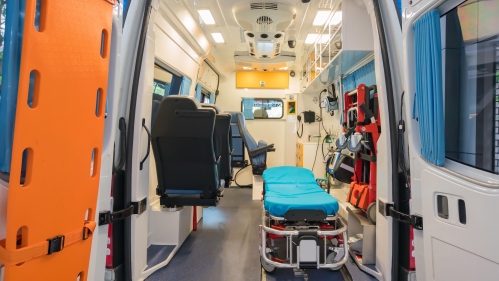
About the Department of Emergency Medicine
About
The mission of the Department of Emergency Medicine is to foster an environment that advances patient care through education, research, and community engagement. We are committed to practicing evidence-based, efficient medicine, supporting an evolving scope of practice, and promoting a team-based approach that values and cultivates the unique contributions of every member.
Our Faculty
Meet Our Team and Learn more about the dedicated faculty leading innovation, education, and excellence in Emergency Medicine.
Advance Practice Providers
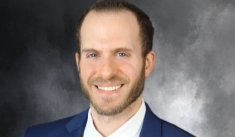
Lead APP | |
| Courtney Lieberman | |
| Walker Annor | |
| Marisa Apolito | |
| Gabrielle Argenziano | |
| Michael Ariskin | |
| Alexis Brewer | |
| Marlene Carey | |
| Dylan Collier | |
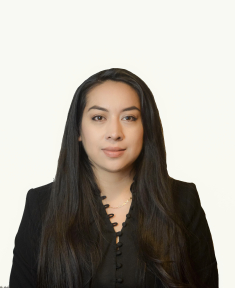
| |
| Carol Harnett | |
| Nicholas Harrison | |
| Yara Hourieh | |
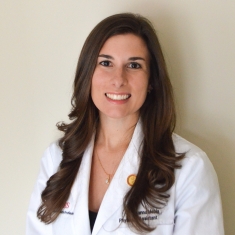
| |
| Michele Nisnevitz | |
| Kamini Patel | |
| Veena Patel | |
| Sarah Roleke | |
| Jenny Shah | |
| Nancy Simoes | |
| Anna Tas | |
| Sim Thongrod | |
| Majella Vucina | |
Administration
Amy Smith
Sr. Director Administration
as2568@rwjms.rutgers.edu
Michelle Bardsley
Clerkship Coordinator
Elective Course Coordinator
holswomi@rwjms.rutgers.edu
Nirali Kelly, MHRM
Residency Coordinator
Fellowship Coordinator
parikhni@rwjms.rutgers.edu
Sumera Khan
Program Support Specialist
khanss@rwjms.rutgers.edu
Deborah Charity
Administrative Coordinator
charitdl@rwjms.rutgers.edu
Ruth Salas, MPH
Assistant Research Coordinator
rjs436@rwjms.rutgers.edu
Contact Us
Elective Information
Michelle Bardsley
Clerkship Coordinator
Department of Emergency Medicine
MEB 278
1 Robert Wood Johnson Place
New Brunswick, NJ 08903
Tel. 732-235-8783
Fax 732-235-6434
holswomi@rwjms.rutgers.edu
Residency & Fellowship Information
Nirali Kelly, MHRM
Residency & Fellowship Coordinator
Department of Emergency Medicine
MEB 278D
1 Robert Wood Johnson Place
New Brunswick, NJ 08903
Tel. 732-235-4296
Fax 732-235-6434
parikhni@rwjms.rutgers.edu
Ultrasound
Christopher Bryczkowski, MD
Associate Professor
Interim Chair
Department of Emergency Medicine
MEB 284
1 Robert Wood Johnson Place
New Brunswick, NJ 08903
Tel. 732-235-8717
bryczkcj@rwjms.rutgers.edu
Simulation
Colleen Donovan, MD
Associate Professor
Department of Emergency Medicine
MEB 288
1 Robert Wood Johnson Place
New Brunswick, NJ 08903
Tel. 732-235-8717
colleen.donovan@rutgers.edu
Residency
Emergency Medicine Residency Program
The Emergency Medicine Residency Program is dedicated to providing the ideal environment for residents to become compassionate emergency medicine physicians who will confidently provide evidence-based, cost-effective care to every patient they treat.
Fellowships
Emergency Ultrasound Fellowship
The Emergency Ultrasound Fellowship in the Department of Emergency Medicine is a one-year, EUFAC-accredited program designed to build upon the ultrasound skills developed during residency and advance expertise in clinical applications, workflow optimization, and program management.
Simulation Fellowship
The Simulation Fellowship is designed to foster your growth as a leader in simulation-based education. You’ll engage in UME, GME and interprofessional education, ethical considerations, and cultural humility, preparing you to create inclusive and effective learning environments.
Clerkship Overview
One of the primary education goals for our department is to provide an experience for medical students that is not only exciting and educational, but is an accurate picture of what emergency medicine is all about. At Robert Wood Johnson Medical School, students complete a mandatory three week long third year rotation. Students participate in clinical shifts and complete required clinical experiences under faculty supervision. Outside of the emergency department, students are expected to complete an asynchronous lecture course with associated board exam-style questions, as well as a high fidelity simulation and table top simulations with faculty.
Medical school students can choose one of the following sites to rotate:
- Robert Wood Johnson University Hospital – New Brunswick, in New Brunswick, NJ
- Robert Wood Johnson University Hospital – Somerset, in Somerville, NJ
- Monmouth Medical Center in Long Branch, NJ
This course is graded on a pass/fail basis. Our students have consistently ranked this clerkship very highly both from an overall perspective and from the experience with the faculty.
Sub-Internship Overview
The sub-internship is also offered for visiting students interested in pursuing emergency medicine residency. Applications are accepted only through VSLO. Start dates are non-negotiable.
Once a student’s initial VSLO application is reviewed, the student will be asked to complete a short supplemental application that will be sent to them by clerkship leadership. Students who are accepted to our sub-internship have the opportunity to apply for at $1500 scholarship that aims at supporting diversity and inclusion at our institution.
Visiting Students
The sub-internship is also offered for visiting students. Applications are accepted only through VSLO, and rotation start/end dates published in VSLO are non-negotiable. Students interested in emergency medicine residency are given scheduling priority. Students can apply starting at the end of March through the beginning of June each year. Once a student’s initial VSLO application is reviewed, the student will be asked to complete a short supplemental application that will be sent to them by clerkship leadership.
Emergency Medicine Visiting Student Sub-Internship Scholarship
Background
Robert Wood Johnson University Hospital (RWJUH) is the primary teaching hospital of Rutgers Robert Wood Johnson Medical School, located in New Brunswick, NJ and the primary site of the Rutgers RWJMS Emergency Medicine Residency Program. The population of New Jersey is reflected in New Brunswick, where we serve a variety of populations with unique health concerns.
Our department is committed to expanding our residency program with individuals who are capable and prepared to serve our patient population.
Program Goal
This program aims to provide financial support for fourth-year medical students interested in providing care to our patient population. Students who rotate with us in New Brunswick can further their practice with disadvantaged populations related to healthcare access, education, and financial resources.
Scholarship
Up to four $1500 scholarships will be awarded annually to students based on their completed applications. Scholarships will only be considered for students who are accepted to rotate at our institution and will be distributed after the student accepts the rotation.
Eligibility
To be eligible, applicants must meet the ALL of the following requirements:
- Applicants must be a current 3rd year medical student who attends a US accredited medical school and is enrolled in a Medical Degree granting program.
- Applicants are interested in expanding their knowledge of the issues facing populations in our community who are disadvantaged with respect to healthcare access, education, and financial resources.
- Applicants must have successfully completed their core rotations in Internal Medicine, Surgery, Pediatrics, Psychiatry, OB/GYN, and Family Medicine.
Application
Applications will be accepted between April 15 – June 1, 2025 on a rolling basis, however, we encourage early applications to ensure funding availability. There is no application fee. Students must also apply to and being accepted to rotate as a sub-intern for the Visiting Sub-Internship in Emergency Medicine at Rutgers Robert Wood Johnson Medical School 8999 through the AAMC Visiting Student Learning Opportunities (VSLO) system for their application to be considered.
Applications will require:
- Completion of the application, found here:
- A personal statement (approximately 350 words) that answers the following question: What are you looking to gain from this experience? How might you apply this new knowledge as a clinician in the future?
- A copy of an unofficial medical school transcript
- A CV or resume
- One letter of recommendation from an emergency medicine faculty member. For schools without emergency medicine programs, a letter from a school dean will be accepted.
Questions
Please contact Dr. Amanda Esposito (santoraa@rwjms.rutgers.edu) with questions regarding the program.
Clerkship Leadership
Laryssa Patti, MD, FACEP Amanda Esposito, MD
Clerkship Director
Subinternship Director
laryssa.patti@rutgers.edu amanda.esposito.md@rutgers.edu
Daniel Polvino, MD Michelle Bardsley
Bootcamp Director Clerkship Coordinator
polvindm@rwjms.rutgers.edu holswomi@rwjms.rutgers.edu
Research Activities
We have developed several focused areas of investigation that include:
- ED Operations,
- Emergency Medical Services,
- Toxicology,
- Ultrasound,
- Medical Student and Resident Education,
- Resuscitation,
- and Social Emergency Medicine.
Our department actively collaborates with the Departments of Medicine, Cardiology, Critical Care, Trauma and Acute Care Surgery, Rheumatology, Radiology, and Family Medicine and Community Health and also includes connections with the New Jersey Alliance for Clinical and Translational Science (NJ ACTS), the Rutgers Cancer Institute of New Jersey (CINJ), Rutgers School of Public Health, Rutgers - University Center for Disaster Preparedness and Emergency Response and Rutgers - Institute for Health, Health Care Policy and Aging Research.
We also participate in national emergency medicine research networks such as Strategies to Innovate Emergency Care Clinical Trials Network (SIREN) and Comprehensive Oncologic Emergencies Research Network (CONCERN).
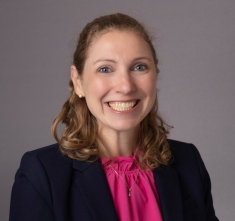
Sara Heinert, PhD, MPH
Director of Research
sara.heinert@rutgers.edu
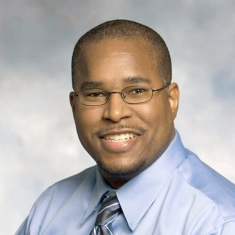
Jonathan McCoy, MD, FACEP
Research Faculty
mccoyj1@rwjms.rutgers.edu
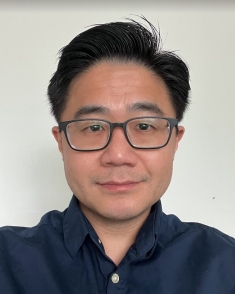
Paul Peng, MD, PhD, MSCR, FACEP
Research Faculty
paul.peng@rutgers.edu
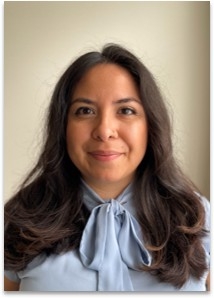
Ruth Salas, MPH
Assistant Research Coordinator
More information on our Emergency Medicine Research Elective for medical students can be found here:
EMED 9017 - Emergency Medicine Research Elective
Volunteer Emergency Medicine Research Associate
Medical school students or Rutgers undergraduate students interested in volunteering as an emergency medicine research associate can complete the form below.
Volunteer by Completing the Form
We will reach out to you if there is a match between your availability and experiences and our current needs. If current availability is limited, we will keep your information on file in case additional opportunities open. Thank you for your interest!
Grand Rounds
The Department of Emergency Medicine Grand Rounds take place on the second Wednesday of each month from September through May. These sessions bring together faculty, residents, fellows, and students to engage in academic discussion, share research, and explore current topics in emergency medicine practice and education. All members of Rutgers Robert Wood Johnson Medical School and Robert Wood Johnson Barnabas Health are welcome to attend.
Wednesday, December 10, 2025 - 8-9am
CHINJ Room 3101 & via Zoom
New Brunswick, New Jersey
“Behind the White Coat: When Physicians Use Substances to Manage Stress"
Presented by
Susan Weinstein, LCSW, CEAP, SAP
Director of EAP/SWP
Rutgers Health: Employee Assistance & Student Wellness Programs
242 Old New Brunswick Road, Suite 330
Piscataway, NJ 08854
Click Here to View Recorded Emergency Medicine Grand Rounds
Clinical Services
Emergency Medicine
Our clinical team of physicians, residents, and advanced practice providers, supported by dedicated medical scribes, delivers 24/7 emergency care for adult patients (ages 21 and older) at Robert Wood Johnson University Hospital. The department treats over 80,000 patients each year, encompassing the full spectrum of emergency conditions—from life-threatening injuries and critical illnesses to minor and urgent concerns.
Our goal is to provide the highest quality care in the most efficient, compassionate, and patient-centered manner possible.”
View More Information on Clinical Services
Observation Medicine
The Rapid Decision Unit (RDU) within the Department of Emergency Medicine at Robert Wood Johnson University Hospital provides focused, short-term care for patients who require extended evaluation, treatment, or monitoring beyond their initial emergency department visit.
Staffed by emergency medicine physicians, advanced practice providers, nurses, and support staff, the RDU enables timely diagnostic testing, therapeutic intervention, and coordinated disposition planning. This model enhances patient safety, throughput, and resource efficiency, while ensuring that each patient receives high-quality, evidence-based care in an appropriate setting.
Medical Toxicology
The Medical Toxicology service within the Department of Emergency Medicine at Robert Wood Johnson University Hospital provides expert consultation and management for patients affected by poisoning, drug overdose, and exposure to toxic substances.
Our board-certified medical toxicologist works alongside emergency physicians, residents, and pharmacists to deliver specialized, evidence-based care. The service also plays a key role in education, research, and community outreach, training the next generation of clinicians to recognize and manage toxicologic emergencies while advancing knowledge in this vital area of emergency medicine.
Division of Emergency and Critical Care Ultrasound
The Division of Emergency and Critical Care Ultrasound is comprised of multiple fellowship-trained ultrasound physicians who provide comprehensive oversight of all point-of-care ultrasound (POCUS) services within the Emergency Department. They are responsible for quality assurance, image review, and clinical integration of POCUS throughout the department. In addition, the division provides education and mentorship to our ultrasound fellows, and delivers dedicated teaching and hands-on training to emergency medicine residents and rotating medical students.
Emergency Medical Services
The Department of Emergency Medicine provides medical command oversight for RWJ Mobile Health Services based at Robert Wood Johnson University Hospital in New Brunswick. RWJ Mobile Health Services delivers Basic Life Support (BLS), Advanced Life Support (ALS), and Specialty Care Transport Unit (SCTU) services to communities throughout New Jersey.
Working in close collaboration with the Emergency Department, RWJ Mobile Health Services ensures seamless prehospital-to-hospital care, supporting timely interventions and continuity across the entire emergency care spectrum.
EM+PACT
EM+PACT (Emergency Medicine + Partnering for Access, Community and Trust) provides an opportunity for the Department of Emergency Medicine to participate in community outreach, build interactions between faculty and residents, and learn meaningful information about other cultures/ethnicities with a goal to provide quality patient care.
Emergency Medicine Community Outreach Liaisons:
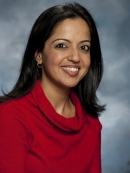
Kusum Punjabi, MD, MBA
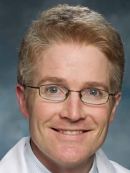
John Collins, MD
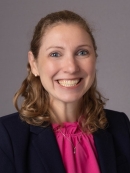
Sara Heinert, PhD, MPH
March - Ramadan Fasting & Faith
In March we had a talk on the health significance of Ramadan fasting and Islam faith by one of our residents Dr. Rohail Khan.
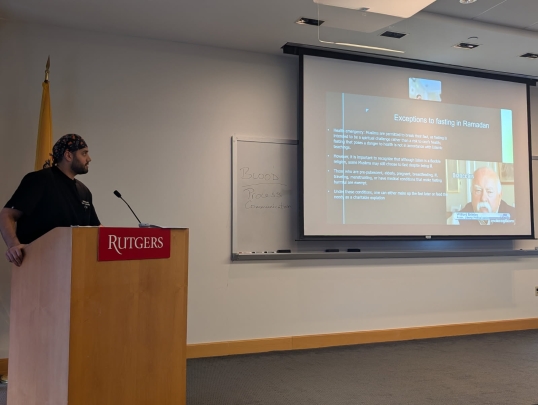
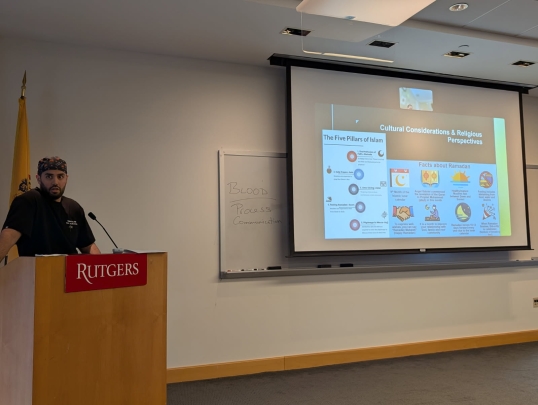
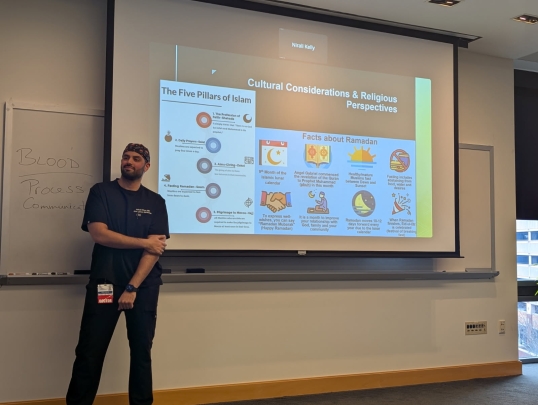
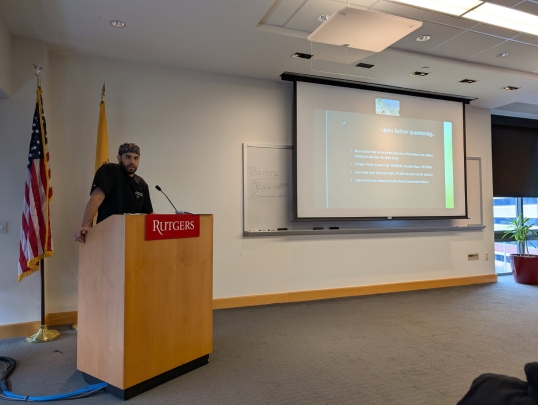
February - Chinese Heritage, Health Issues & Concerns
In February we had the Chinese Healthcare Navigator team come present on the Lunar New Year and Chinese cultural heritage to better understand their health issues and concerns.
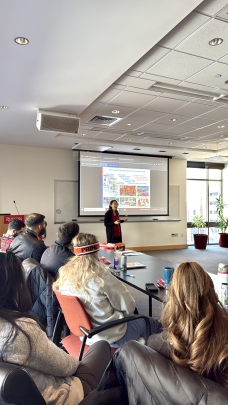
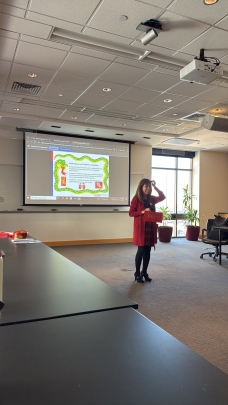
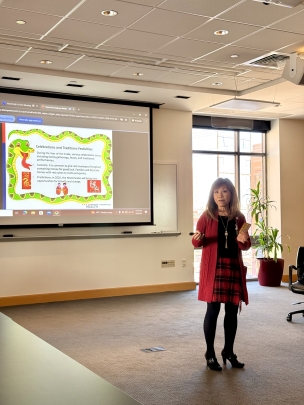
January - The Impact of Social Determinants on Health Outcomes
Presented by: Dr. Denise Rodgers, MD
Vice Chancellor for Interprofessional Programs
Director, Urban Health and Wellness Institute
Rutgers University
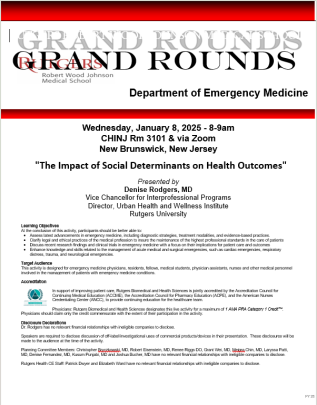
Our Division
The Division of Emergency and Critical Care Ultrasound includes a team of fellowship-trained physicians who oversee all aspects of point-of-care ultrasound (POCUS) within the Emergency Department. Their responsibilities include program oversight, image review, quality assurance, and the continued integration of ultrasound into clinical care and decision-making.
The division plays a central role in education and training, providing instruction and mentorship for ultrasound fellows, emergency medicine residents, and rotating medical students. Faculty also collaborate with the Emergency Medicine Ultrasound Interest Group, engage in research and innovation, and are actively involved in regional and national ultrasound organizations focused on the growth and advancement of point-of-care ultrasound.
ULTRASOUND LEADERSHIP
Christopher Bryczkowski, MD, FACEP, FAEMUS
Interim Chair
bryczkjcj@rutgers.edu
Amanda Esposito, MD
Assistant Professor
amanda.esposito.md@rutgers.edu
Michael Mirza, MD
Assistant Professor
mirzamr@rwjms.rutgers.edu
Daniel Morrison, MD, FACEP
Professor
morrisds@rwjms.rutgers.edu
Mary Rometti, MD
Assistant Professor
mr1436@rwjms.rutgers.edu
